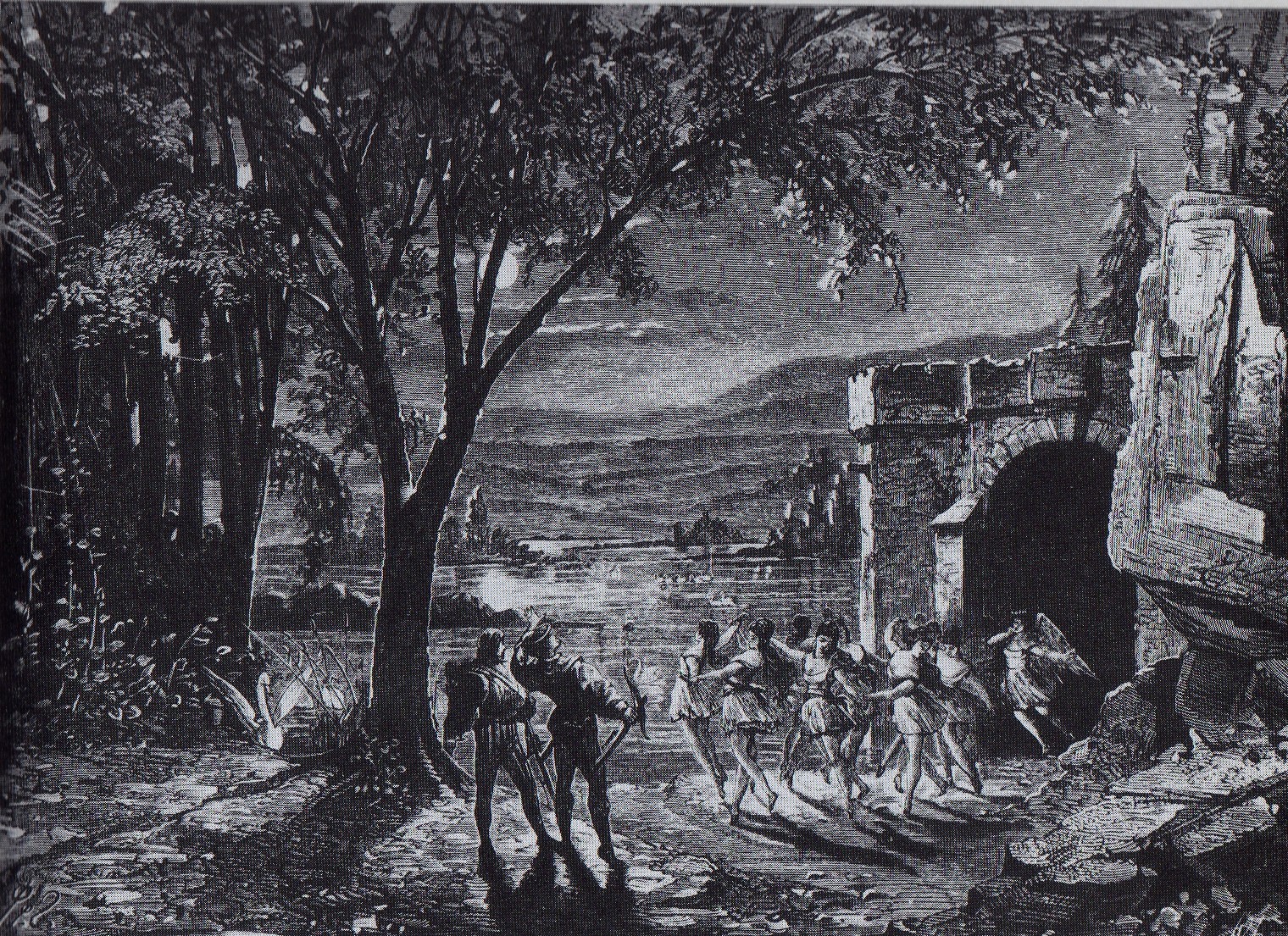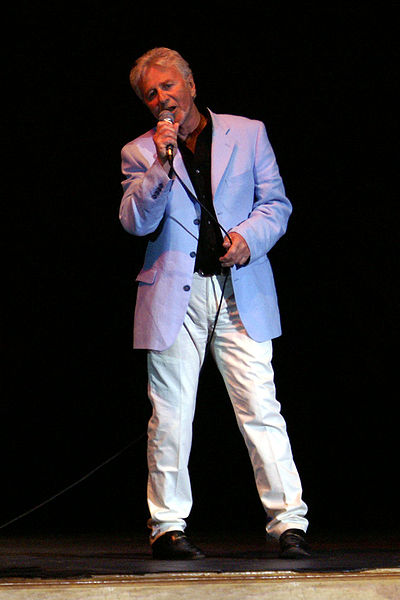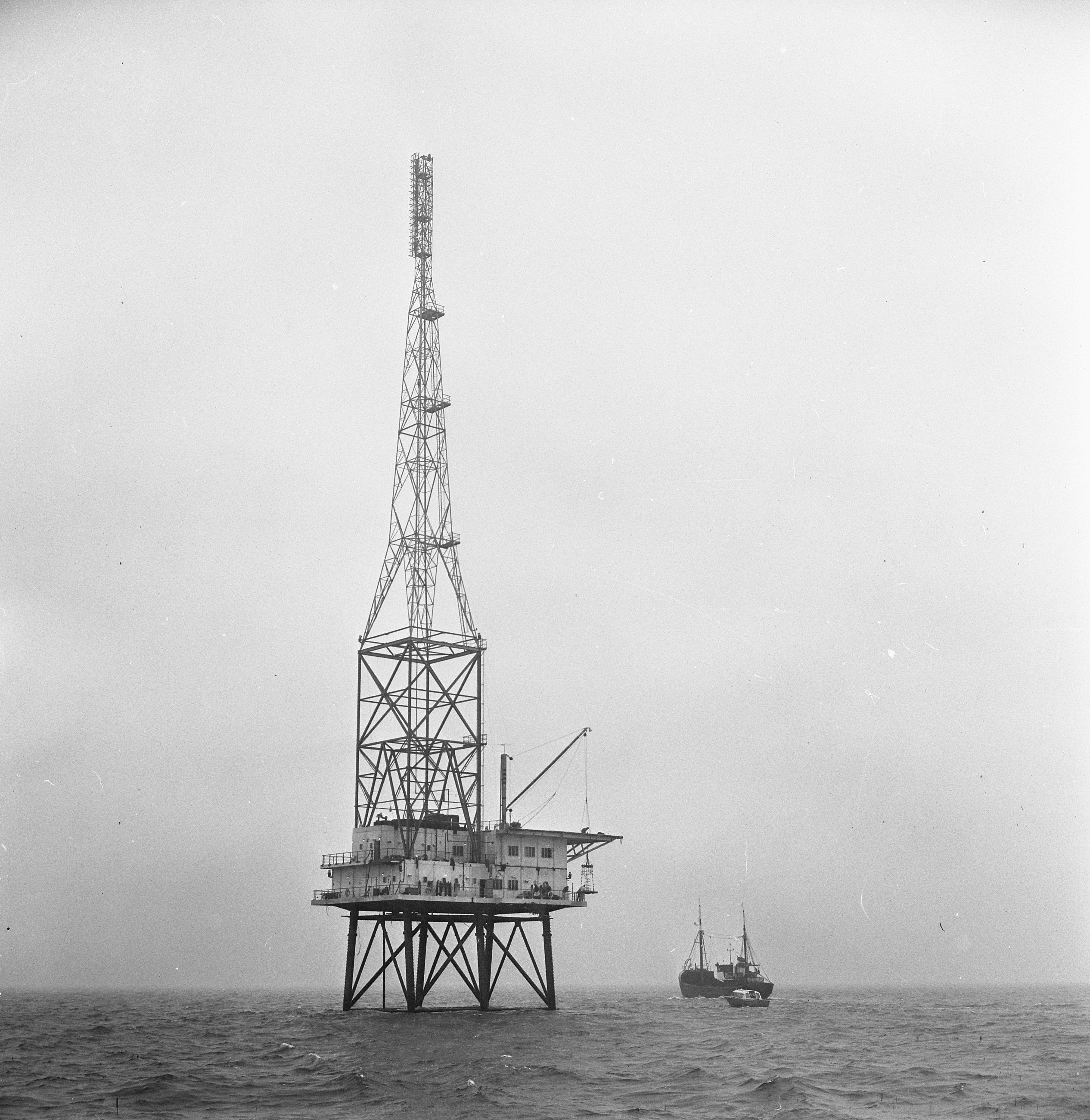|
The Fortunes
The Fortunes are an English harmony beat group. Formed in Birmingham, the Fortunes first came to prominence and international acclaim in 1965, when "You've Got Your Troubles" broke into the US, Canadian, and UK Top 10s. Afterwards, they had a succession of hits including " Here It Comes Again" and "Here Comes That Rainy Day Feeling Again"; continuing into the 1970s with more globally successful releases such as "Storm in a Teacup" and "Freedom Come, Freedom Go". In 1966, their manager, Reginald Calvert, was shot dead in a dispute over pirate radio stations. Biography The Fortunes (Rod Allen, Glen Dale, Barry Pritchard as vocalists, Chris Capaldi as piano player, Gary Fletcher as drummer and Tony Britnell as saxophone player) were formed in 1961 and were resident at Clifton Hall in Rugby Warwickshire where many 60s rockstars formed their career. The three vocalists had been the Merrie Men backing Robbie Hood (A.K.A Mike West, previously co-singer with Fred Heath in Johnny ... [...More Info...] [...Related Items...] OR: [Wikipedia] [Google] [Baidu] |
You've Got Your Troubles
"You've Got Your Troubles" became the inaugural composition by the prolific songwriting team of Roger Cook (songwriter), Roger Cook and Roger Greenaway in 1964. "You've Got Your Troubles" became a number 2 UK hit for the Fortunes in the United Kingdom in August 1965, affording the group international success including a Top Ten ranking in the US. The track was included on the Fortunes' self-titled 1965 debut album release, the group's only album release of the 1960s. History Cook and Greenaway wrote "You've Got Your Troubles" while they were both members of the group the Kestrels, the song being composed while that group was on a pop package tour. Cook recalls he and Greenaway were in a theatre. "Roger [Greenaway] said 'I've [written] a little tune' and we both brought our ukuleles out and he played [his tune] and he said 'Could you help me with the lyric?' and in the space of two hours we'd written the whole song". Cook and Greenaway cut a demo (music), demo to pitch the son ... [...More Info...] [...Related Items...] OR: [Wikipedia] [Google] [Baidu] |
Storm In A Teacup (The Fortunes Song)
"Storm in a Teacup" is a song written by Lynsey de Paul (who is credited as Lynsey Rubin) and Ron Roker, that was recorded by the British group The Fortunes. The recording was arranged by Lew Warburton and produced by Roger Cook and Roger Greenaway. Rod Allen (The Fortunes bassist and vocalist) later spoke about De Paul and recalled "She was great. She kept popping into Cook's and Greenaway's office loaded with songs. One day she walked in with 'Storm' and Roger was knocked out." Indeed, Roger Cook was so knocked out that he recommended that The Fortunes record the song and, upon release, it reached No. 7 on the UK Singles Chart, No. 9 on the Irish Singles Chart (IRMA), No.15 on the New Zealand singles chart and No. 65 on the Australian Kent Music Report in 1972. It also spent two weeks in the Dutch Tipparade. De Paul revealed to '' OK!'' magazine in a 1996 interview that it sold three million copies. The song peaked at No. 11 on the Adelaide, Australia 5AD Official Top 40 on 1 ... [...More Info...] [...Related Items...] OR: [Wikipedia] [Google] [Baidu] |
Here Comes That Rainy Day Feeling Again
"Here Comes That Rainy Day Feeling Again" is the title of a pop song composed by Tony Macaulay, Roger Cook, and Roger Greenaway; it became the third U.S. Top 40 hit for The Fortunes in 1971, and their fifth in Canada. Background The song uses depressing images to describe the singer's mood anticipating a breakup with his significant other, comparable to the feeling of a rainy day or a Monday, contrasted with the "memories of Sunday" when the two were still together, as he hopes she changes her mind and comes back to him. The bridge is noted for its lines: "Misty morning eyes/ I'm trying to disguise the way I feel/ But, I just can't hide it/ People seem to know/ The loneliness will show/ I'm thinking of my pride/ But, breaking up inside, girl." Lead singer Rod Allen uses a vocal technique similar to that used by Frankie Valli on his solo records. The song reached number 15 on the U.S. ''Billboard'' Hot 100 and number 8 on the ''Cash Box'' Top 100. It was also a hit in Canada (num ... [...More Info...] [...Related Items...] OR: [Wikipedia] [Google] [Baidu] |
Tony Hiller
Anthony Toby Hiller (30 July 1927 – 26 August 2018) was an English songwriter and record producer. He was best known for writing and/or producing hits for Brotherhood of Man, including " United We Stand" (1970) and "Save Your Kisses for Me" (1976). Biography The eldest of eight children, he was born in Bethnal Green, East London, England. Along with other staff and students from his Jewish Free School in Kenton, London, he was evacuated to Ely, Cambridgeshire, in 1939. He began his musical career as a member of the song and dance duo The Hiller Brothers, sharing the stage with his brother Irving. The Hiller Brothers appeared with many performers of the time including Alma Cogan, Tommy Cooper, Val Doonican, Matt Monro, The Shadows, Bernard Manning, Kathy Kirby, Roger Whittaker, Rip Taylor, Gene Vincent, Lance Percival, Tessie O'Shea, Frank Ifield, Deep River Boys, The Dallas Boys, Clark Brothers, Paul Melba, and Ray Burns. Hiller was best known for writing and/or producing n ... [...More Info...] [...Related Items...] OR: [Wikipedia] [Google] [Baidu] |
Tchaikovsky
Pyotr Ilyich Tchaikovsky , group=n ( ; 7 May 1840 – 6 November 1893) was a Russian composer of the Romantic period. He was the first Russian composer whose music would make a lasting impression internationally. He wrote some of the most popular concert and theatrical music in the current classical repertoire, including the ballets ''Swan Lake'' and ''The Nutcracker'', the ''1812 Overture'', his First Piano Concerto, Violin Concerto, the ''Romeo and Juliet'' Overture-Fantasy, several symphonies, and the opera ''Eugene Onegin''. Although musically precocious, Tchaikovsky was educated for a career as a civil servant as there was little opportunity for a musical career in Russia at the time and no system of public music education. When an opportunity for such an education arose, he entered the nascent Saint Petersburg Conservatory, from which he graduated in 1865. The formal Western-oriented teaching that he received there set him apart from composers of the contemporary nation ... [...More Info...] [...Related Items...] OR: [Wikipedia] [Google] [Baidu] |
Swan Lake
''Swan Lake'' ( rus, Лебеди́ное о́зеро, r=Lebedínoye ózero, p=lʲɪbʲɪˈdʲinəjə ˈozʲɪrə, link=no ), Op. 20, is a ballet composed by Russian composer Pyotr Ilyich Tchaikovsky in 1875–76. Despite its initial failure, it is now one of the most popular ballets of all time. The scenario, initially in two acts, was fashioned from Russian and German folk tales and tells the story of Odette, a princess turned into a swan by an evil sorcerer's curse. The choreographer of the original production was Julius Reisinger (Václav Reisinger). The ballet was premiered by the Bolshoi Ballet on at the Bolshoi Theatre in Moscow. Although it is presented in many different versions, most ballet companies base their stagings both choreographically and musically on the 1895 revival of Marius Petipa and Lev Ivanov, first staged for the Imperial Ballet on 15 January 1895, at the Mariinsky Theatre in St. Petersburg. For this revival, Tchaikovsky's score was revised by ... [...More Info...] [...Related Items...] OR: [Wikipedia] [Google] [Baidu] |
The Ivy League (band)
The Ivy League were an English vocal trio, formed in 1964, who enjoyed two top 10 hit singles on the UK Singles Chart in 1965. The group's sound was characterised by rich, three-part vocal harmonies. Career The Ivy League was formed in August 1964 by three session singers with an extensive vocal range, John Carter, Ken Lewis (both previous members of Carter-Lewis and the Southerners) plus Perry Ford. They were first heard doing background vocals for The Who on their hit single " I Can't Explain" in November 1964 but after that, the Who's producers entrusted John Entwistle and Pete Townshend with the backing vocals. Their debut single, "What More Do You Want" generated little interest but the second release, "Funny How Love Can Be" made the UK chart's Top 10. Further hits followed, including "That's Why I'm Crying" and UK chart number 3 "Tossing and Turning". The original trio released just one album, 1965's ''This is the Ivy League'' – panned in the music press a ... [...More Info...] [...Related Items...] OR: [Wikipedia] [Google] [Baidu] |
Perry Ford
Perry Ford (born Brian Joseph Pugh, 30 December 1933 – 29 April 1999) was an English pop singer, songwriter, producer and session musician, best known as a member of the Ivy League. Life and career Born in Lincoln, he moved to London in the mid-1950s and began singing and playing in Soho clubs.. Under the name Lou Bryan, he briefly joined Colin Hicks & the Cabin Boys as pianist in 1958, and then joined Vince Taylor's band, the Playboys. In 1959, using the name Perry Ford, he recorded the first of three singles on the Parlophone label, produced by George Martin, but none were successful. However, he found some success as a songwriter, co-writing Adam Faith's 1960 UK chart hit "Someone Else's Baby" with Les Vandyke, and co-writing "Caroline" with Tony Hiller for the Fortunes. Although "Caroline" was not a chart hit, it became widely known as the theme song for the pirate radio station Radio Caroline. In 1964, after working with talent manager Reg Calvert in Denmark Street ... [...More Info...] [...Related Items...] OR: [Wikipedia] [Google] [Baidu] |
Birmingham
Birmingham ( ) is a city and metropolitan borough in the metropolitan county of West Midlands in England. It is the second-largest city in the United Kingdom with a population of 1.145 million in the city proper, 2.92 million in the West Midlands metropolitan county, and approximately 4.3 million in the wider metropolitan area. It is the largest UK metropolitan area outside of London. Birmingham is known as the second city of the United Kingdom. Located in the West Midlands region of England, approximately from London, Birmingham is considered to be the social, cultural, financial and commercial centre of the Midlands. Distinctively, Birmingham only has small rivers flowing through it, mainly the River Tame and its tributaries River Rea and River Cole – one of the closest main rivers is the Severn, approximately west of the city centre. Historically a market town in Warwickshire in the medieval period, Birmingham grew during the 18th century during the Midla ... [...More Info...] [...Related Items...] OR: [Wikipedia] [Google] [Baidu] |
Instrumental
An instrumental is a recording normally without any vocals, although it might include some inarticulate vocals, such as shouted backup vocals in a big band setting. Through semantic widening, a broader sense of the word song may refer to instrumentals. The music is primarily or exclusively produced using musical instruments. An instrumental can exist in music notation, after it is written by a composer; in the mind of the composer (especially in cases where the composer themselves will perform the piece, as in the case of a blues solo guitarist or a folk music fiddle player); as a piece that is performed live by a single instrumentalist or a musical ensemble, which could range in components from a duo or trio to a large big band, concert band or orchestra. In a song that is otherwise sung, a section that is not sung but which is played by instruments can be called an instrumental interlude, or, if it occurs at the beginning of the song, before the singer starts to sing ... [...More Info...] [...Related Items...] OR: [Wikipedia] [Google] [Baidu] |
Pirate Radio
Pirate radio or a pirate radio station is a radio station that broadcasts without a valid license. In some cases, radio stations are considered legal where the signal is transmitted, but illegal where the signals are received—especially when the signals cross a national boundary. In other cases, a broadcast may be considered "pirate" due to the nature of its content, its transmission format (especially a failure to transmit a station identification according to regulations), or the transmit power (wattage) of the station, even if the transmission is not technically illegal (such as an amateur radio transmission). Pirate radio is sometimes called bootleg radio (a term especially associated with two-way radio), clandestine radio (associated with heavily politically motivated operations) or free radio. History Radio "piracy" began with the advent of regulations of the airwaves at the dawn of the age of radio. Initially, radio, or wireless as it was more commonly called at ... [...More Info...] [...Related Items...] OR: [Wikipedia] [Google] [Baidu] |
Radio Caroline
Radio Caroline is a British radio station founded in 1964 by Ronan O'Rahilly and Alan Crawford initially to circumvent the record companies' control of popular music broadcasting in the United Kingdom and the BBC's radio broadcasting monopoly. Unlicensed by any government for most of its early life, it was a pirate radio station that never became illegal as such due to operating outside any national jurisdiction, although after the Marine Offences Act (1967) it became illegal for a British subject to associate with it. The Radio Caroline name was used to broadcast from international waters, using five different ships with three different owners, from 1964 to 1990, and via satellite from 1998 to 2013. Since August 2000, Radio Caroline has also broadcast 24 hours a day via the internet and by the occasional restricted service licence. Currently they also broadcast on DAB radio in certain areas of the UK: these services are part of the Ofcom small-scale DAB+ trials. Caroline can b ... [...More Info...] [...Related Items...] OR: [Wikipedia] [Google] [Baidu] |
.jpg)



